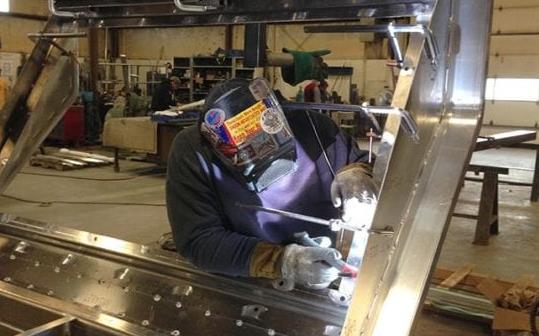Precision Sheet Metal: What's the Difference?
Precision sheet metal fabrication is a specialized field within the broader metalworking industry, focusing on creating high-precision components for various applications. Unlike standard sheet metal work, precision fabrication demands tighter tolerances, more intricate designs, and often involves a higher level of customization. This guide explores the defining characteristics of precision sheet metal fabrication, highlighting the differences that set it apart and its significance in modern manufacturing.

Key Characteristics of Precision Sheet Metal Fabrication
Precision sheet metal fabrication is distinguished by several key factors, including the techniques used, the precision of the final products, and the types of projects it supports.
Enhanced Precision and Tolerances
Precision fabrication operates within tighter tolerances compared to general sheet metal work. Tolerances — the allowable deviation from specified dimensions — can be as tight as ±0.005 inches (±0.127 mm), essential for applications where precise fit and function are critical.
Advanced Manufacturing Techniques
This specialization leverages advanced manufacturing technologies such as CNC (Computer Numerical Control) machining, laser cutting, and precision metal stamping. These techniques enable the creation of complex shapes and features with high accuracy.
Complex Assembly and Finishing Processes
Precision sheet metal fabrication often involves complex assembly processes, including specialized welding techniques and hardware insertion. Finishing processes might include bead blasting, anodizing, or powder coating, each chosen to enhance the durability and aesthetic of the final product.
Material Selection and Quality
Material selection is crucial in precision fabrication, with choices often based on the specific strength, conductivity, or corrosion resistance required. The quality of the material directly impacts the performance of the final product, necessitating stringent quality control measures from sourcing through production.
Applications of Precision Sheet Metal Fabrication
The demand for precision sheet metal fabrication spans various industries, each with unique requirements that necessitate this level of detail and accuracy.
Aerospace and Aviation
Components for aerospace and aviation must meet exacting standards for safety and performance, making precision fabrication essential for parts like fuselage panels, engine components, and control systems.
Medical Devices
Medical device manufacturing relies on precision fabrication for equipment and instruments where every millimeter matters, from surgical tools to diagnostic machines.
Electronics and Technology
The electronics industry requires precision-fabricated metal parts for enclosures, heat sinks, and chassis, where tight tolerances are critical for ensuring proper fit, function, and heat dissipation.
Automotive
High-performance and luxury vehicles, as well as electric cars, utilize precision-fabricated components for both structural and aesthetic purposes, including custom fittings, engine parts, and decorative elements.
Conclusion
Precision sheet metal fabrication stands apart from standard practices in its demand for tighter tolerances, advanced manufacturing techniques, and the ability to produce complex, high-quality components for critical applications. As industries continue to evolve towards more sophisticated and specialized products, the role of precision sheet metal fabrication becomes increasingly important, driving innovation and excellence in manufacturing. Through the combination of skilled craftsmanship, advanced technology, and strict quality control, precision fabrication meets the challenges of today's high-tech industries, delivering solutions that exceed expectations.